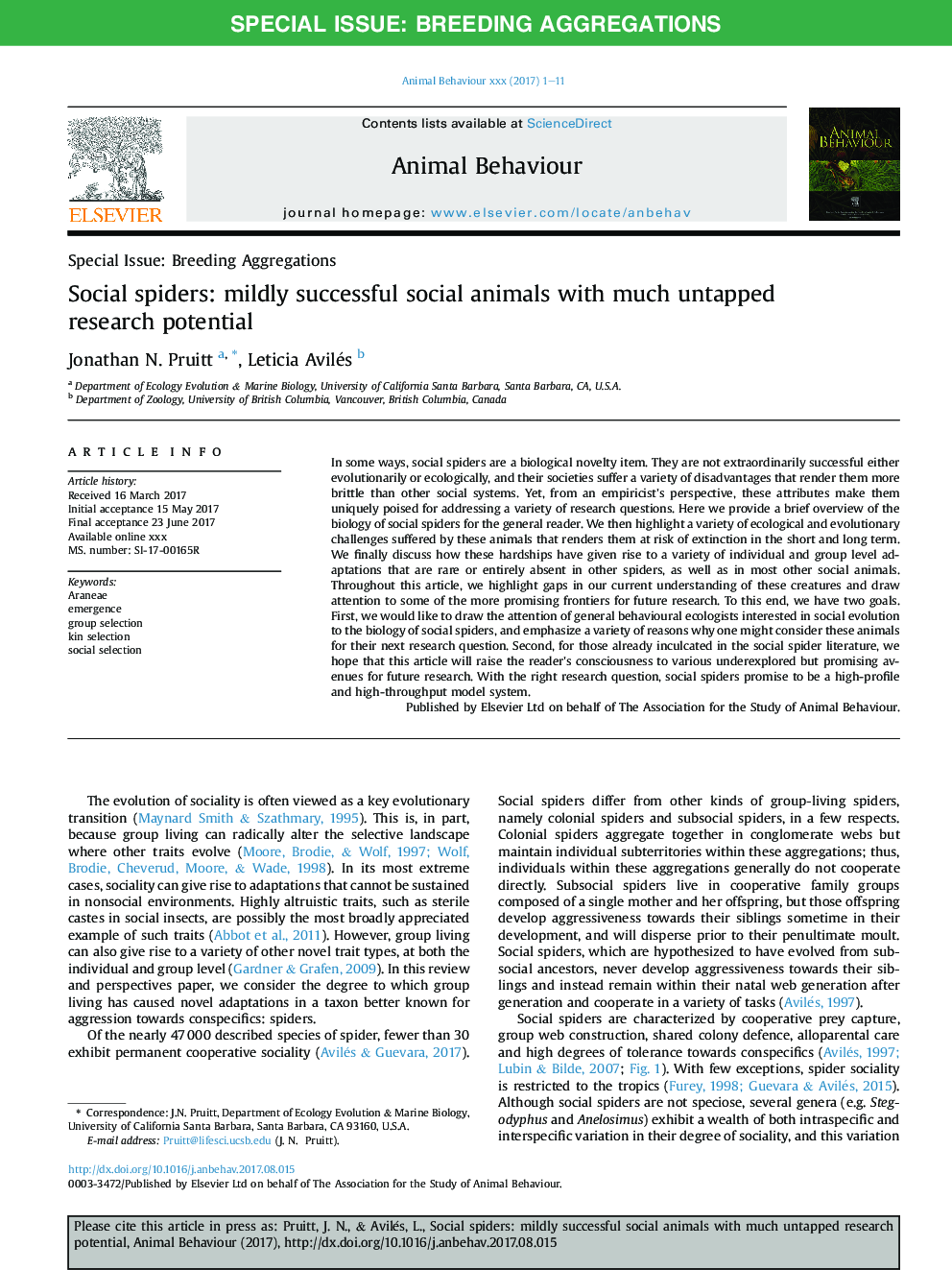| Article ID | Journal | Published Year | Pages | File Type |
|---|---|---|---|---|
| 9954589 | Animal Behaviour | 2018 | 11 Pages |
Abstract
In some ways, social spiders are a biological novelty item. They are not extraordinarily successful either evolutionarily or ecologically, and their societies suffer a variety of disadvantages that render them more brittle than other social systems. Yet, from an empiricist's perspective, these attributes make them uniquely poised for addressing a variety of research questions. Here we provide a brief overview of the biology of social spiders for the general reader. We then highlight a variety of ecological and evolutionary challenges suffered by these animals that renders them at risk of extinction in the short and long term. We finally discuss how these hardships have given rise to a variety of individual and group level adaptations that are rare or entirely absent in other spiders, as well as in most other social animals. Throughout this article, we highlight gaps in our current understanding of these creatures and draw attention to some of the more promising frontiers for future research. To this end, we have two goals. First, we would like to draw the attention of general behavioural ecologists interested in social evolution to the biology of social spiders, and emphasize a variety of reasons why one might consider these animals for their next research question. Second, for those already inculcated in the social spider literature, we hope that this article will raise the reader's consciousness to various underexplored but promising avenues for future research. With the right research question, social spiders promise to be a high-profile and high-throughput model system.
Related Topics
Life Sciences
Agricultural and Biological Sciences
Animal Science and Zoology
Authors
Jonathan N. Pruitt, Leticia Avilés,
